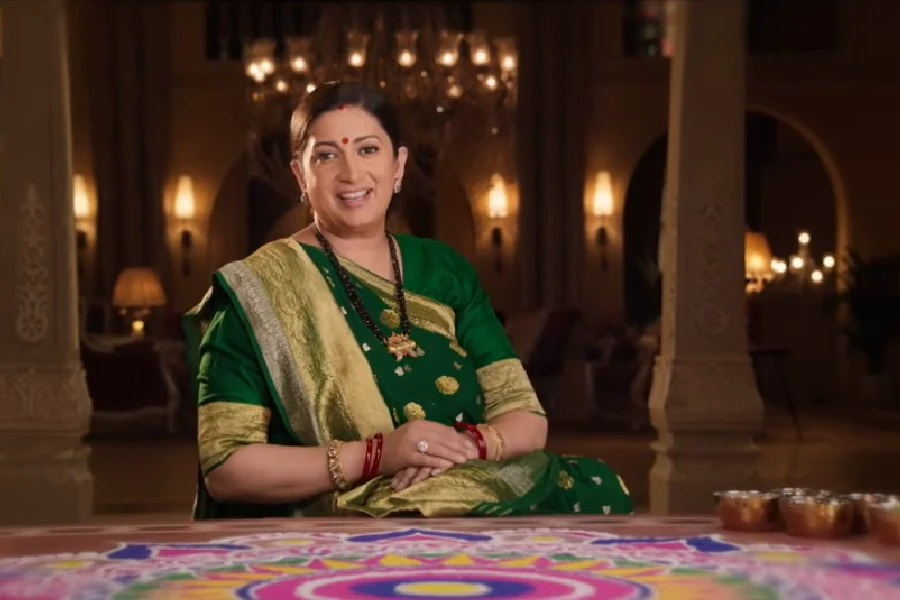When returned for a second season, it was hard not to be curious. The title alone carries weight. For years, it dominated TV screens in Indian households in the early 2000s.
Like many other ’90s kids, I grew up seeing Tulsi Virani’s story unfold on screen for eight long years. And when the reboot was announced, I tuned in, expecting to soak in the nostalgia.
Sadly, I was left wanting.
Produced by Ektaa Kapoor’s Balaji Telefilms Ltd, debuted on Star Plus in 2000 and aired till 2008. Smriti Irani, the show’s lead, turned to politics in the meantime and even served as a union minister. A second season was announced earlier this year and premiered on Star Plus on July 29 at 10.30pm, the show’s original airtime.
The new season has definitely upped its game in terms of visuals. The production is sleeker, the palatial Virani mansion grander, and the characters wear trendy clothes. They are occasionally seen scrolling through phones or talking about social media.
But it doesn’t take long to realise that beyond the gloss, not much has changed. The same dynamics play out – idealistic bahu who is taken for granted, scheming saases, and family conflicts stretched over multiple episodes. It’s a show still built on broad moral binaries and melodrama that feels outdated.
Watching 2 reminded me of why I stopped watching the original somewhere around the mid-2000s. Back then, the storytelling had already begun to lose steam, relying on dramatic time leaps, characters coming back from the dead with their faces altered by plastic surgery, illegitimate children springing up left, right, and centre, and plotlines that no longer made sense.
And now, all these years later, the same formula has returned, mostly untouched. Before the reboot aired, multiple promotional interviews by the makers claimed that the show has moved on with the times and incorporated progressive ideas. Does it reflect on the show? I’m afraid not.
Sample this. Tulsi overhears her daughter speaking to a boy on the phone and thinks to herself, “(a storm is about to hit us)”. When her son is arrested in a drunk driving case, she leaves in a huff from her own wedding anniversary party, and promptly, a lamp at the begins flickering. Not to forget the long lectures about Virani family values that she delivers at the police station.
What the show seems to overlook is how much the audience has moved on. Over the last decade, streaming platforms like Netflix and Prime Video have started to experiment with diverse storytelling. In comparison, feels stuck in a time warp. Nostalgia can get you through the first episode or two, but eventually, the repetition sets in.
Satyajit Ray had famously said in an interview that the Indian audience is fairly backward. Reports of hitting record-high TRP on its debut seem to prove the auteur right.
